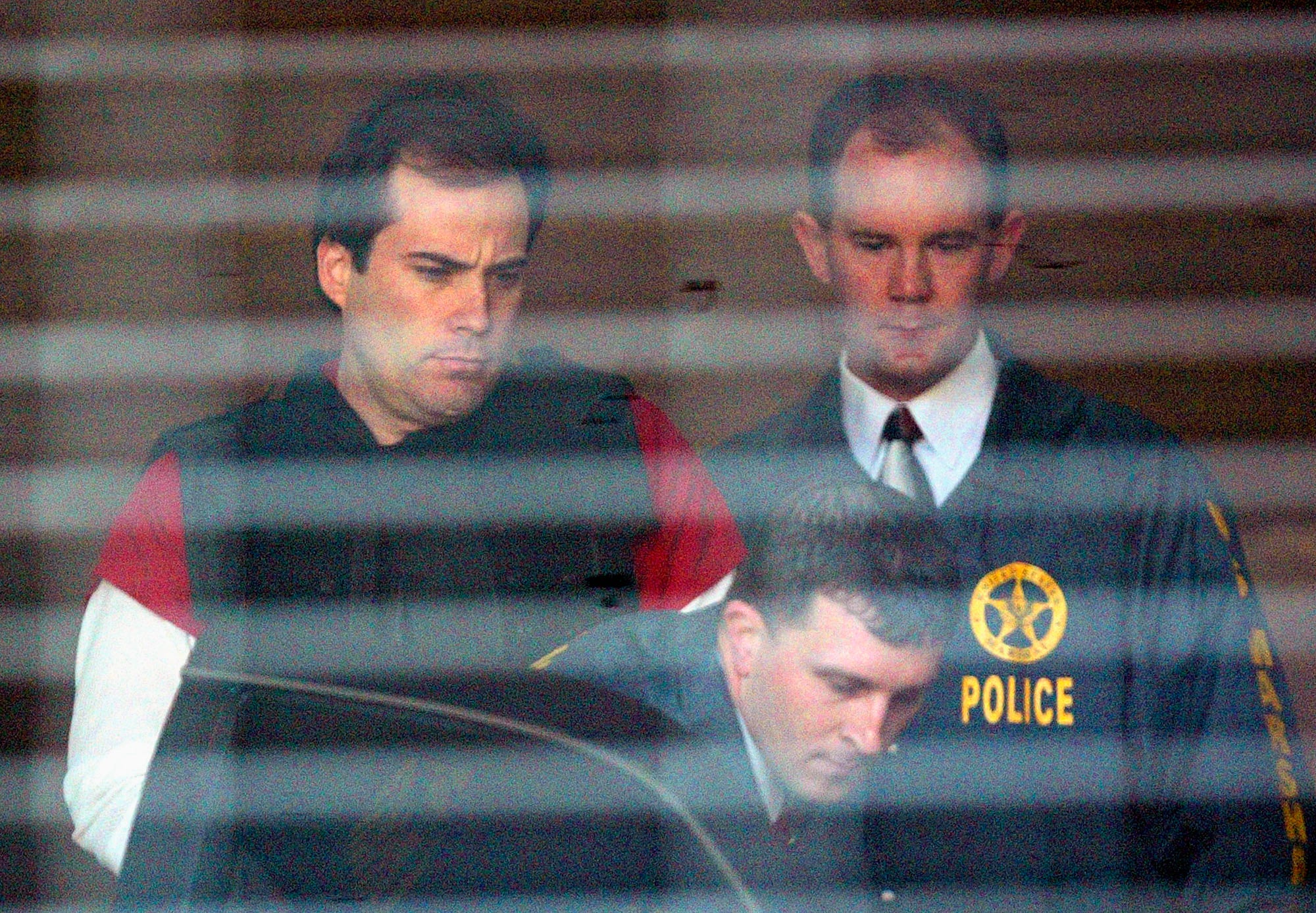The 1996 Atlanta Olympics couldn’t have been going better for the host team. Then a bomber struck
When Olympic Park bomber Eric Robert Rudolph detonated a device in Atlanta in 1996, the terror would continue for almost seven years – as he struck an abortion clinic and evaded capture, all the while the reputation of an innocent man was left in tatters. Rachel Sharp reports

The 1996 Olympic Games couldn’t have been going better for the host team.
“The Greatest” Muhammad Ali had bravely lit the Olympic torch while battling Parkinson’s disease in a spectacular opening ceremony in Atlanta.
Team USA was leading the board in both gold medals and total medals.
World records were being smashed by the home team (with sprinter Michael Johnson soon to hold the 400m and 200m world record for many years to come).
Then everything changed.
In the early hours of 27 July 1996, a pipe bomb detonated in the Centennial Olympic Park in downtown Atlanta, Georgia, where revellers had gathered for the games.
Two people were killed and more than 100 others were injured.
The fear and suffering from that day would continue for years to come as the bomber struck again, this time at an abortion clinic, as he evaded capture for almost seven years – all the while the reputation of an innocent man, whose actions likely saved more lives, was left in tatters.
Now, the tragedy – and the five-year manhunt that followed – is the focus of a new episode in the Netflix series Catching Killers.
Here’s the true story behind the show:
The bombing
While people gathered for a free music concert in celebration of the games, Eric Robert Rudolph planted a homemade bomb filled with nails and screws inside a backpack in the Centennial Olympic Park.
Rudolph then called 911 twice from a nearby payphone warning that spectators had 30 minutes to evacuate the park before it would detonate.
“There is a bomb in Centennial Park. You have 30 minutes,” he says.
True to word – around 20 minutes later– the bomb went off.
Alice Hawthorne, a 44-year-old mother who had gone to watch the games with her 14-year-old daughter, was killed in the blast.
Melih Uzunyol, a Turkish cameraman, suffered a heart attack and died as he ran to film the scene.
The manhunt
With families grieving, the city in terror and a bomber on the loose, the future of the games lay in doubt.
But, the International Olympic Organizing Committee insisted the show must go on – and the park reopened to spectators on 30 July.
Meanwhile, multiple law enforcement agencies began a huge manhunt to try to catch the assailant.
But, with the bomber’s identity still unknown, an innocent man fell under suspicion.
Richard Jewell had been working as a security guard at the Atlanta Games that night when he spotted the suspicious looking backpack among the crowds of people.
He and Georgia Bureau of Investigation agent Tom Davis alerted bomb specialists who immediately told them to evacuate the area.
As they were doing this, the bomb detonated.
Jewell’s quick-thinking actions had likely saved more lives and he was initially hailed as a hero.
But things quickly took a turn when the Atlanta Journal-Constitution revealed that he was a suspect in the case.
He was finally publicly cleared by investigators three months later. By then, his reputation was already in ruin. He died of a heart attack aged 44 in 2007.
The real bomber meanwhile was free to strike again.
On the morning 29 January 1998, off-duty police officer Robert Sanderson was working a security shift at the New Woman, All Women Health Care Clinic, in Birmingham.
He noticed an unusual flowerpot outside and went to look at it.
A nail bomb left in the plant pot detonated, killing him instantly. Nurse Emily Lyons, who was walking into the abortion clinic for her shift, was seriously injured and had to undergo multiple surgeries.
One month later, Rudolph was named as the suspect in the Olympic Park bombing and he was placed on the FBI’s 10 Most Wanted Fugitives.
The capture
Even though investigators now had a suspect they didn’t know where he was.
In 2000 – fours after the Olympic Park bombing and two years after he was identified as the bomber – he was charged with four bombings.
These were: the Olympic Park bombing, the Birmingham abortion clinic bombing, a bombing at an abortion clinic in Sandy Springs in January 1997 and a bombing at a gay nightclub in the Atlanta area in February 1997.
It would be another three years before he was finally caught.
His downfall came when he was spotted by a rookie officer while rifling through a dumpster behind a supermarket in North Carolina.
He was taken into custody to face charges.
Rudolph pleaded guilty to all four bombings and was sentenced to four consecutive life sentences plus 120 years in prison for the three Atlanta-area bombings and two life sentences for the Alabama bombing.
While he apologised to his victims and their families in court, the bomber also released an 11-page document where he blamed his actions on “aberrant sexual behaviour” and the legalisation of abortion.
Rudolph is currently being held in a high security prison in Colorado.
Subscribe to Independent Premium to bookmark this article
Want to bookmark your favourite articles and stories to read or reference later? Start your Independent Premium subscription today.
